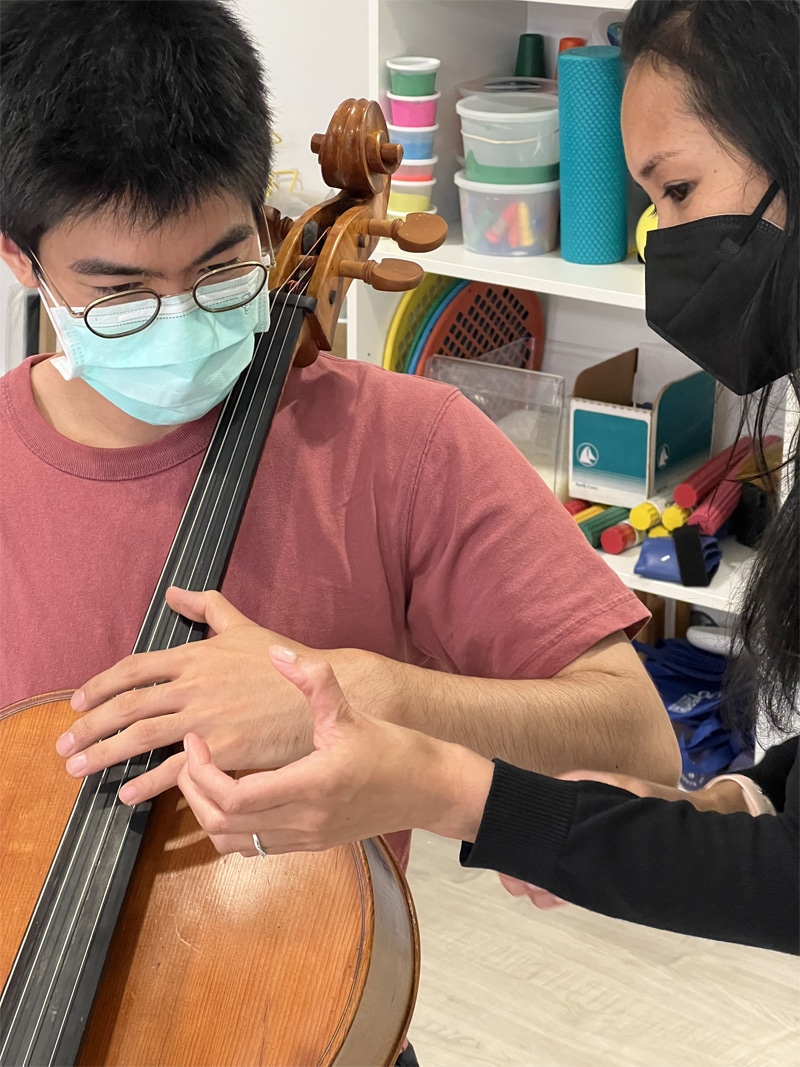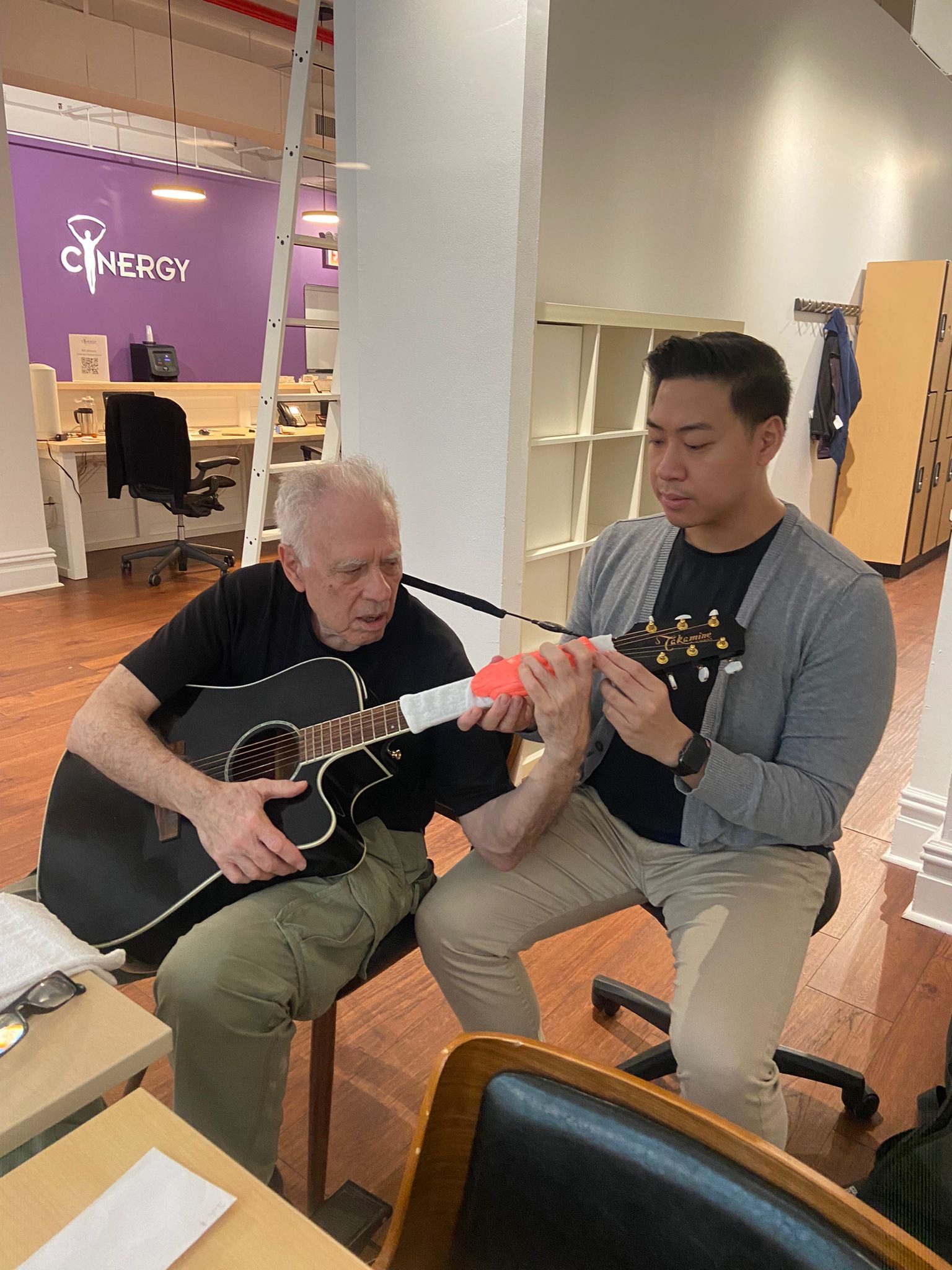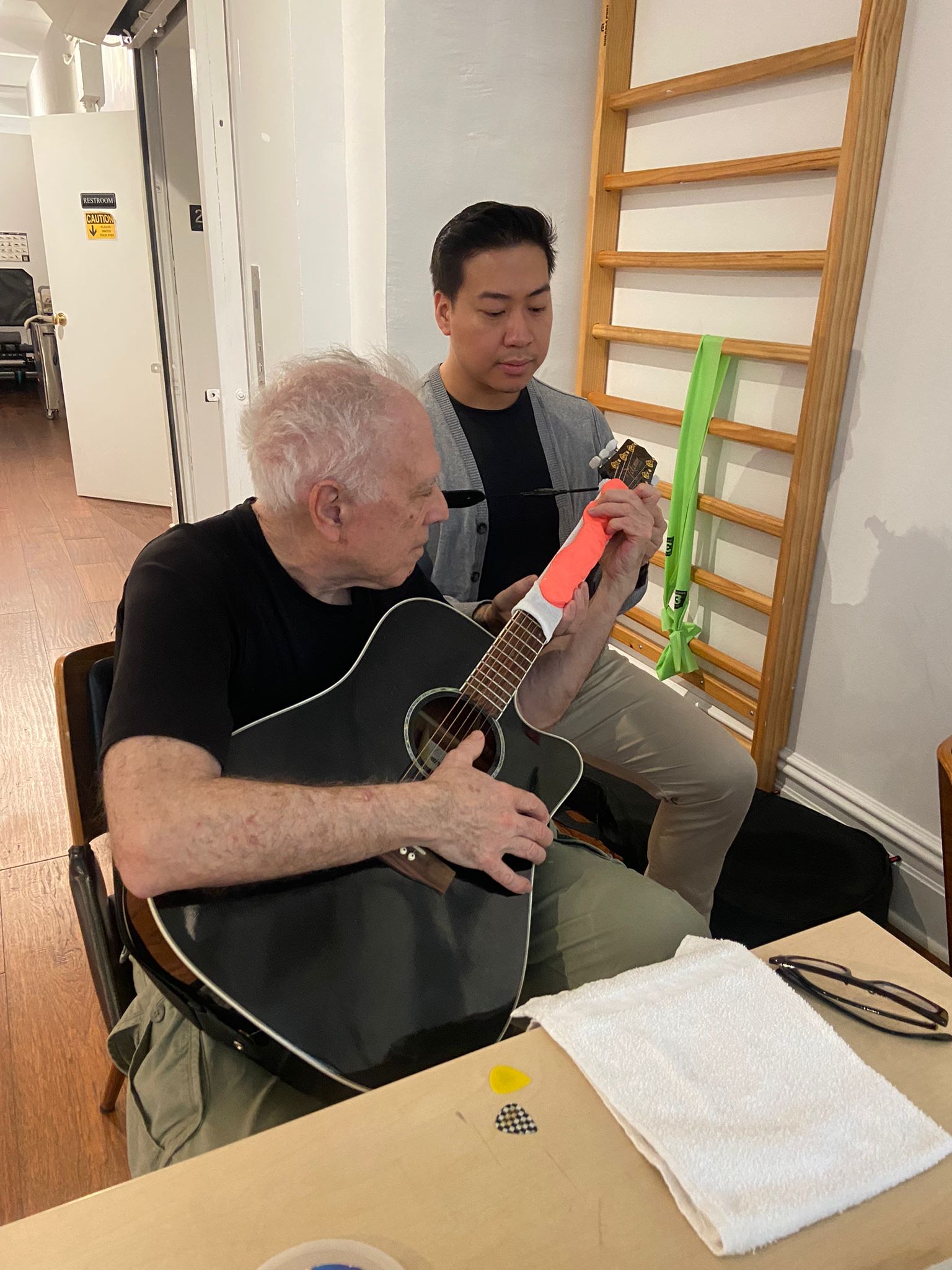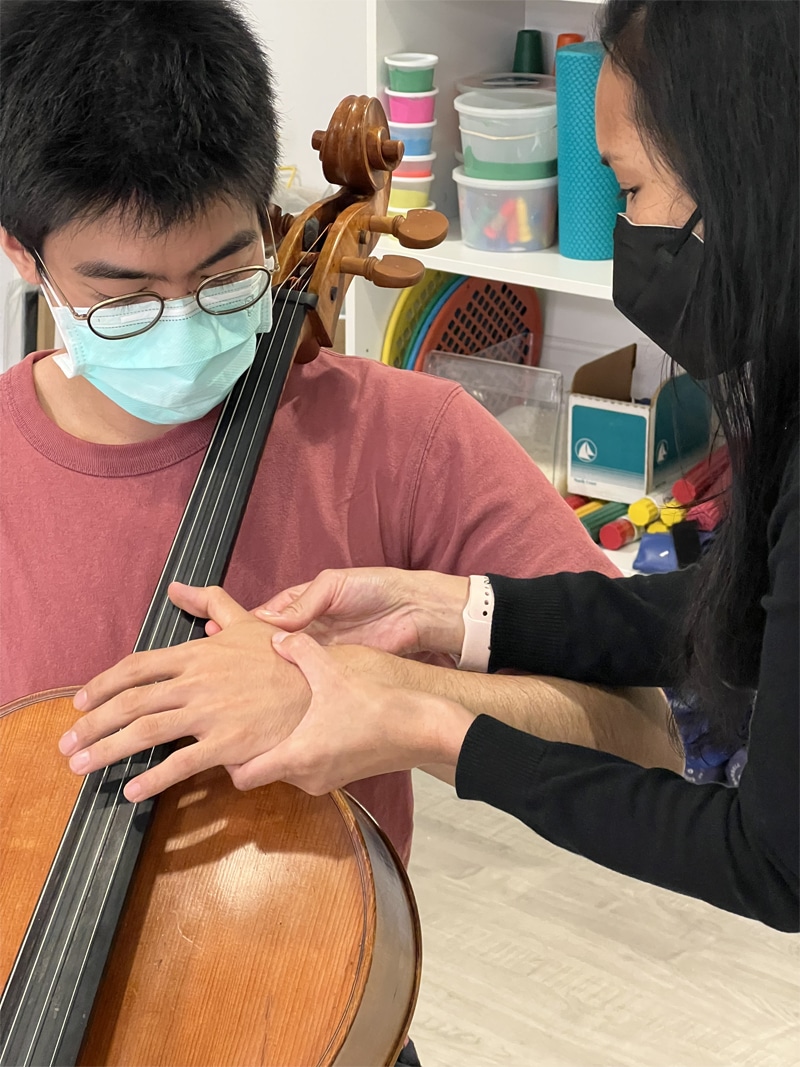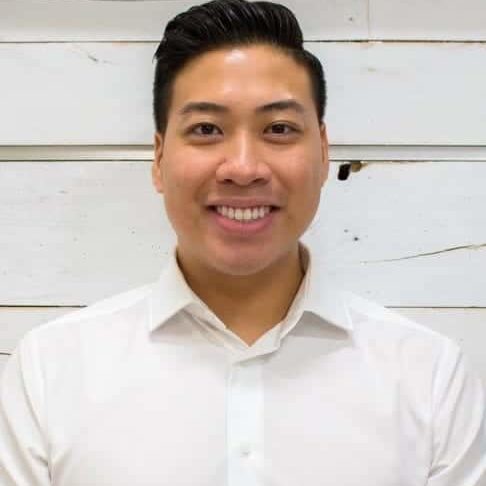Occupational and physical therapists provide services that enhance and enable their clients to participate in meaningful activities by utilizing specific practice frameworks that guide their judgment in designing highly individualized intervention plans that deeply consider the interactions between patients, their needs, their environment, and the meaningful activities they engage in.
With the principles of our framework, OTs and PTs can focus on treating musicians to prevent repetitive stress, make suggestions for activity modifications, as well as how to use one’s joints more efficiently through good body mechanics. These self-management strategies can help guide the musician not only to play better but to increase their playing longevity.
Musicians should consider going to a therapist who treats musicians because of their understanding of how the whole body works. OTs and PTs can analyze the musician’s movement during playing to help solve the root of the problem. No two musicians who play the same instrument will be playing exactly the same way. OTs and PTs address patients as a whole and examine them in and outside of the theater environment to find the specific causes of their pain or limitations. OTs and PTs can then show specific stretches to help prevent tightness of muscles that are specific to a given instrument. They can also teach exercises to strengthen muscles that support the arm, and strengthening exercises to promote good sitting posture.
Various instrument families include:
- String instruments: cello, violin, guitar, bass, harp
- Woodwinds: Clarinet, Saxophone, Flute, Oboe, Bassoon, Piccolo
- Brass: Trumpet, Trombone, French Horn, Tuba, FlugelHorn, Cornet
- Percussion: Drums, Piano, Xylophone, Cymbals, Timpani
Specific conditions that musicians can suffer from include:
- Tendonitis: Common ones include lateral and medial epicondylitis; rotator cuff tendonitis; shoulder impingement
- Nerve compressions: Carpal tunnel (Compression of the median nerve); Cubital tunnel (Compression of the ulnar nerve)
- Osteoarthritis of the CMC joint of the thumb; Digit DIPs and PIPs
- Trigger finger
When seeing an occupational or physical therapist, patients will be taught life-long strategies to help heal and improve their playing longevity.
These strategies include:
- Warming up: This can include simple exercises such as arm circles, side bends, jumping jacks, and light jogging. This can help to bring blood flow to the body
- Stretching targeted muscles that tighten from one’s playing position
- Strengthening bigger muscle groups of the upper extremity to help support the whole arm and to prevent overuse of the smaller ones such as the wrist and digits
- Strengthening the shoulder girdle can prevent tendonitis and help improve one’s posture
- Playing technique: Reduce tension in areas of your body where you can avoid tight gripping of the instrument. Holding accessory pieces of instruments, such as the bow when playing the cello, with ease can help place less stress on the joints
- Tuning your instrument: Instruments that are not working properly or to their optimal level will require extra unnecessary work that your body needs to produce causing more stress on the muscles and joints
- Taking breaks every hour by walking around to help promote blood flow and prevent muscles from tightening up
- Modifying how you perform other non-musical activities so that you can reserve your affected joint or muscle for performing
- Education on improving body and joint control to promote isolated muscle contraction during rehabilitation. Musicians may accidentally co-contract or compensate by recruiting additional muscles that may contribute to their pain
- Prevention: Through close observation during activities, we can determine if there are any movements that can cause both temporary and permanent damage to joints or muscles and can provide corrective measures accordingly.
Read what our patients are saying!
"My experience with hand therapist Christine Rodriguez was spectacular! She was with me for the full 45-minute sessions each week and observed all Covid protocols. Her hands-on approach and customizing of the exercises to accommodate my return to my career as a professional musician, pain-free, was totally excellent. I owe her a huge debt of gratitude and would recommend her highly to anyone recovering from hand surgery!"
"Not only did Christine’s treatment make it possible for me to resume a full schedule of piano practice (three hours daily), but my hands are free of tension and my playing has improved as well! The 2017 recital, featuring almost an hour and a half of classical music, was an enormous success, and it would absolutely not have been possible without Christine's skilled and dedicated, patient work. I subsequently went on to perform two more recitals, in 2018 and 2019. In addition to her outstanding professional skills, she is an utter pleasure to work with as well! I would highly recommend her to anyone needing occupational therapy."
